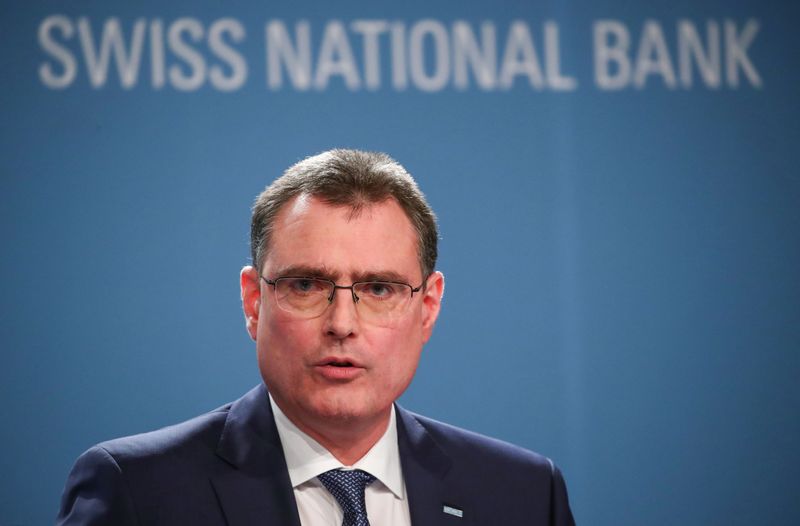
The SNB was not happy about the negative interest rate of minus 0.75% it charges banks who park money with it overnight, Jordan told the SonntagsZeitung paper.
It would lift the rates — the lowest in the world — as soon as circumstances allowed, he said, although this was currently impossible.
“We unfortunately have no choice but to maintain the negative interest rate,” said Jordan. “Without it, we would be in a much more difficult situation now.
“The Swiss franc would be massively more attractive and the financing conditions for the Swiss economy would be much worse,” he added. “The negative interest is necessary at the moment to avert major damage to Switzerland.”
The SNB was also stepping up foreign currency purchases to dampen the rise of the franc, Jordan said.
Sight deposits at the central bank, a proxy for SNB interventions, have risen by nearly 77 billion Swiss francs ($79.33 billion) this year, while the franc has risen to its highest level against the euro (EURCHF=) since July 2015.
“We have emphasized several times … we are active in the foreign exchange markets to reduce the pressure on the Swiss franc,” Jordan told the paper.
“We deliberately never report our transactions in detail, but I would like to emphasise that we are making a substantial commitment,” he said.
All this was necessary to prevent the franc from strengthening, hurting Switzerland’s export-orientated economy and triggering deflation.
“The appreciation on the franc as a safe haven has become enormous,” Jordan said. “Without the SNB’s monetary policy we would see a completely different franc exchange rate in the current situation.”
In a separate interview with the Tribune de Geneve paper, Jordan was asked whether the SNB was trying to keep the euro from falling below 1.05 to the franc.
“We do not defend a specific course against the euro. To carry out its mandate and in its assessment, the SNB takes into account the situation for all currencies,” he said.
Jordan told the papers restrictions on public life imposed by the Swiss government to try to curb the spread of COVID-19 were limiting Swiss economic activity to 70-80% of normal levels at an economic cost of 11-17 billion francs per month.
Asked by Tribune de Geneve if Swiss rates could go even more negative, he said: “We still have room to manoeuvre if necessary, but today we are focusing on interventions on the foreign exchange market to limit the pressure on the franc.”
He said the SNB had no plans at this stage to increase its gold holdings of 1,040 tonnes.



